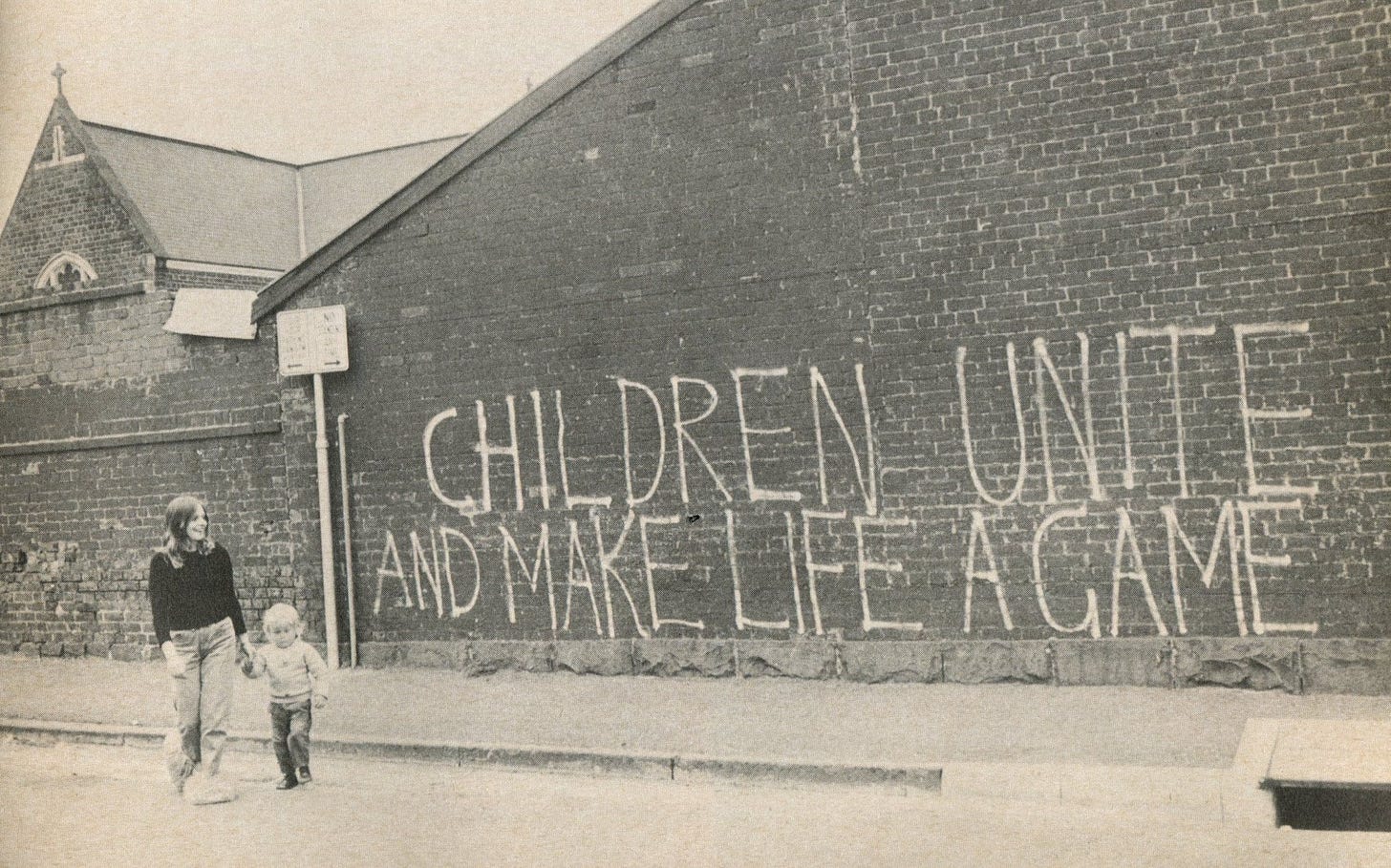how to be a kid who goes places
Q3.23 LP update excerpt

My whole job for this first fund is to bet on promising people. One of the most frequent questions I get as someone surrounded by a lot of young talent is “What makes the founders of your generation different?” While I can offer plenty of high-level platitudes, I’ve found it’s more compelling to put you in our shoes. Picture this:
You grew up online: firstly, on technical forums alongside hobbyists and retired engineers discussing how to build robotic arms for small-scale manufacturing, and secondly, on Twitter. You were always an intensely curious kid with innate talents in math and science and when your life became complicated by your parent’s divorce in grade school, you made good friends with your computer. The forums taught you a lot — leading your rabbit holes to become large-scale projects. You begin a master project that people pay attention to — financially supporting your work, commending your drive, and telling you you’re special. A deep-rooted sense grows within you that you’re destined to do something great.
It was in high school when you discovered Silicon Valley. This was a time when Facebook was already starting to become boomer, Instagram was for girls, and Twitter was where all the interesting technical people spent their time pre-retirement. Twitter externalized the culture of Silicon Valley — its ambitions, ideals, and influences — into a readable daily sitcom complete with protagonists, antagonists, and subplots. You were entranced. You made friends and a name for yourself there through a mix of proactivity, earnest curiosity, and sharing good work that captured the zeitgeist of the time. But after subsuming most of your high school experience, your master project had started to feel sour. After much cajoling from friends who know you well, you finally called the project quits and hung up your tweeting hat your senior year. You’d learned how to play the game well enough to know when you were playing the wrong one.
You go to college in Texas to study electrical engineering. You can do everything, collecting all kinds of impressive short-term jobs for yourself during the summers using thoughtful emails and DMs. You experience your first tragedy and subsequent struggle, leading you to get briefly tangled in the mess that is mental health care today. Like many of your friends, you come away from this experience with yet another reason to feel like our institutions are lying to us (“Why are we told to focus on ourselves when the only thing that worked for me was focusing less on myself and more on the people around me?”). Unlike your friends though, you remain optimistic. Your wisdom and reasons to keep going are hard-won and rooted in faith, not fact.
You gradually meet all of your heroes. You watch and analyze world-class people at work, taking detailed notes. You’re especially drawn to those who don’t seem to have sacrificed leading a happy life to do great work. You like SF but don’t like NYC. All around you, everything keeps changing — the technologies, where your globe-trotting friends live, what they’re working on. Startups no longer carry with them the sparkly all-encompassing ideology that they once did, and the ones that do frame it ironically. At the same time, one of your projects starts blowing up, bringing in real dollars. You’re briefly tempted to drop out, picking SF’s scene of big dreams over the village you spent all of college building for himself. “What are you learning in school anyway?” the scene murmurs. You think about it and realize you have an answer: you’re learning how to live. You stay put, savoring the last months you have in the comfort of still being a kid.
This is where you stand now, with a whole army of friends on your side and endless options on the table. To name a few: found a company, go into research, or spend time in politics. You see your life as a series of projects and predict you’ll do everything on that list someday. Founding has always been your dream, but you’re discerning — the questions of what, with whom, and when need answers first. In the meantime, you continue building your own independent conviction. You know you’re just getting started.
***
This is what being a future founder feels like today. Unlike the founders of yesteryear (most notably during the 2010s when technology was more widely celebrated for its own sake within Silicon Valley and the industry was far smaller) I’ve noticed that the most promising founders taking their first shots on goal today are defined by:
Being prolific in many more areas than ever before by a young age (they think of their career in “eras” and see technology as merely one means by which they can make an impact)
Holding hard-won irrational beliefs from an early fall/formative experience (this is what makes them an outlier and gives them a unique POV)
Show signs of thinking for themself: abstaining from social media, practicing religion, going to and graduating college despite having other, more advanced professional opportunities available to them
I believe that good founders have been and always will be N’s of 1 — but what constitutes an outlier is dependent on where they stand in relation to all that came before them. While some founder qualities have been consistently beneficial to the formation of Silicon Valley (e.g. curiosity, proactivity, and grand ambitions) other indicators are still emergent that a person is one of a kind. Now that I have placed you in our shoes, I’ll turn it back to you. Who comes to mind?

Extremely accurate.
Extremely beautiful, precise, well spoken, relatable, and convict